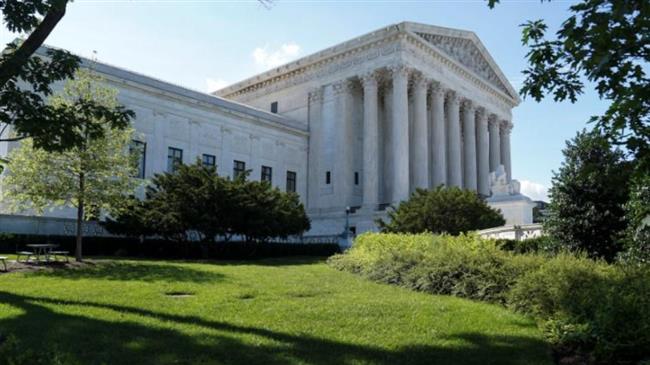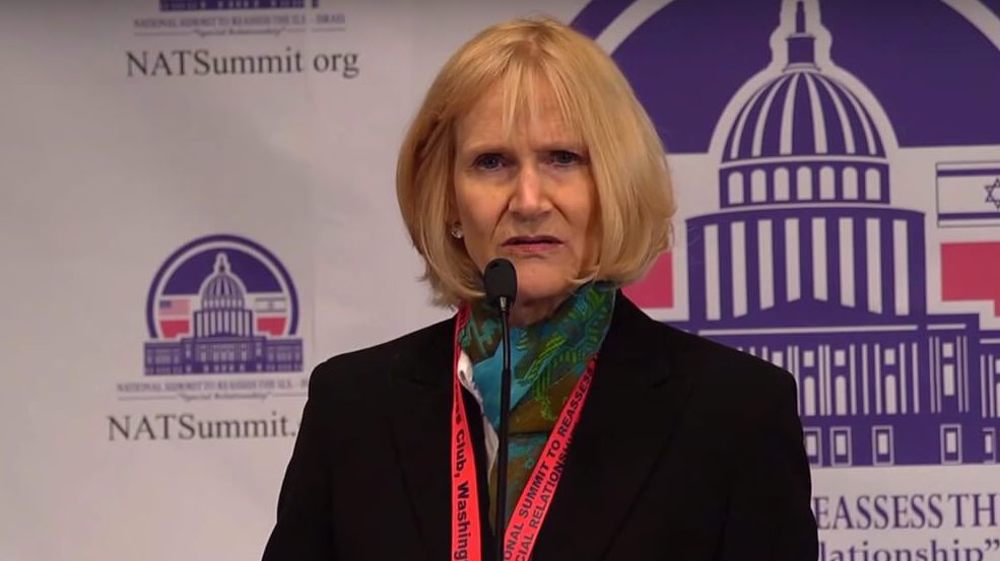US Supreme Court upholds Trump's travel ban against Muslims
The US Supreme Court has upheld President Donald Trump’s controversial travel ban targeting several Muslim-majority countries, handing one of the biggest victories of his presidency.
The 5-4 ruling, with the court’s five conservatives in the majority, was penned by Chief Justice John Roberts on Tuesday.
The top court rejected claims that the travel ban represented unconstitutional religious discrimination, and said that Trump's immigration restriction fell "squarely" within the president's authority.
"The [order] is expressly premised on legitimate purposes: preventing entry of nationals who cannot be adequately vetted and inducing other nations to improve their practices," Roberts wrote. "The text says nothing about religion."
Roberts said that the government “has set forth a sufficient national security justification” to prevail.
“We express no view on the soundness of the policy,” Roberts added.
Trump meanwhile in a post on Twitter hailed the verdict.
The Supreme Court ruling ends a fierce fight in the courts over the controversial case regarding Trump's order to restrict travel to the US for citizens from Iran, Libya, Somalia, Syria and Yemen.
The US Supreme Court in December allowed the ban, put in place by Trump with a presidential proclamation in September, to go into effect while litigation challenging it continues.
The case has been central to the Trump administration's immigration policy, presenting a key test of the president's campaign promise to restrict immigration and secure America's borders.
Roberts said the actions taken by the president were “well within executive authority and could have been taken by any other president - the only question is evaluating the actions of this particular president in promulgating an otherwise valid proclamation.”
The challengers have argued Trump’s travel ban was motivated by his hostility toward Muslims and requested courts to take into account his inflammatory remarks made during the presidential campaign.
During the 2016 presidential race, Trump campaigned for "a total and complete shutdown" of Muslims entering the United States on the pretext of preventing terrorist attacks.
"Though I am disappointed by the outcome, I am heartened that our system of government worked as the founders intended," Neil Katyal, attorney for the challengers in the case, said in a statement Tuesday. "Now that the Court has upheld it, it is up to Congress to do its job and reverse President Trump’s unilateral and unwise travel ban."
Trump has said the restrictions are needed to tighten security and prevent terrorist attacks. Opponents say the ban violates the US Constitution because it discriminates against Muslims and certain nationalities.
VIDEO | ICC's warrant against Netanyahu
Israel destroys 8-story residential building in missile strike in Beirut
Nov. 22: ‘Axis of Resistance’ operations against Israeli occupation
VIDEO | Press TV's news headlines
VIDEO | US-Israeli genocide: Will Gazans see ceasefire deal achieved?
VIDEO | Grief strikes Parachinar: 44 lives lost in terror attack
VIDEO | Yemen’s armed forces target Israeli airbase amid nationwide pro-Palestinian rallies
Putin vows more test of new hypersonic missile











 This makes it easy to access the Press TV website
This makes it easy to access the Press TV website